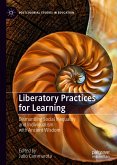This edited collection responds to the contemporary need for deeper analysis and rethinking of the relation between education and emancipation in a world beset by social, digital, educational and ecological crises. Among the diverse interdisciplinary perspectives explored are: rethinking the Anthropocene in the time of environmental emergency, the concept of relational thinking as emancipatory practice and a more encompassing concept of relational pedagogy that includes questions about the environment and digitalisation, the notion of indoctrination from the perspective of political education, reconnecting with the body as a form of emancipatory education and how schools reproduce socio-cultural ideologies in synergy with material and visual culture. The book chapters also consider the role of social media, postcolonialism and feminism in understanding emancipatory education and a historical reception of John Dewey's ideas in other than Western contexts. This volume will be of interest to those seeking well-known as well as further and novel acquaintance with the philosophical and critical issues surrounding different forms and ideas of emancipation and/or/through education, including related practical propositions and examples. Educators, scholars in education, social justice, philosophy, sociology and curriculum developers will find this collection valuable in contemplating, practising and theorising the futures of emancipatory education across contexts and themes.
NataSa Lackovic is Senior Lecturer/Associate Professor at the Department of Educational Research at Lancaster University, UK.
Predrag Krstic is Senior Research Fellow at the Institute for Philosophy and Social Theory, University of Belgrade, Serbia.
Olga Nikolic is Research Fellow at the Institute for Philosophy and Social Theory, University of Belgrade, Serbia.
Igor Cvejic is Senior Research Fellow at the Institute for Philosophy and Social Theory, University of Belgrade, Serbia.
NataSa Lackovic is Senior Lecturer/Associate Professor at the Department of Educational Research at Lancaster University, UK.
Predrag Krstic is Senior Research Fellow at the Institute for Philosophy and Social Theory, University of Belgrade, Serbia.
Olga Nikolic is Research Fellow at the Institute for Philosophy and Social Theory, University of Belgrade, Serbia.
Igor Cvejic is Senior Research Fellow at the Institute for Philosophy and Social Theory, University of Belgrade, Serbia.
Dieser Download kann aus rechtlichen Gründen nur mit Rechnungsadresse in A, B, BG, CY, CZ, D, DK, EW, E, FIN, F, GR, HR, H, IRL, I, LT, L, LR, M, NL, PL, P, R, S, SLO, SK ausgeliefert werden.









